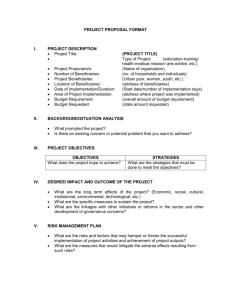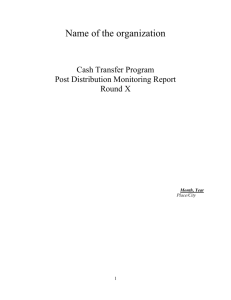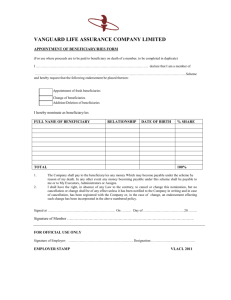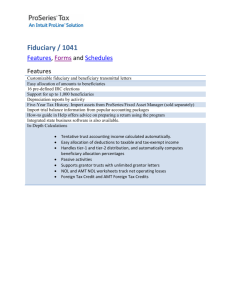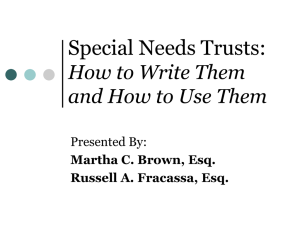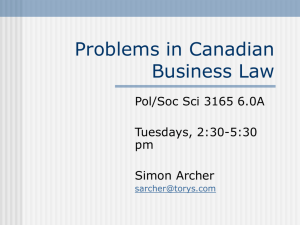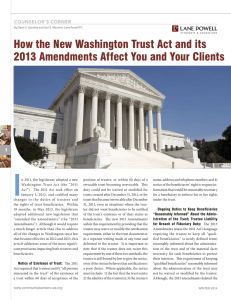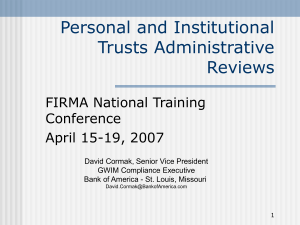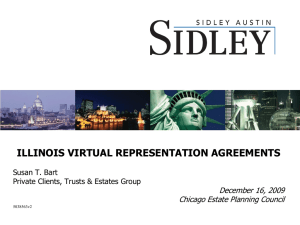Benefits of a discretionary trust
advertisement
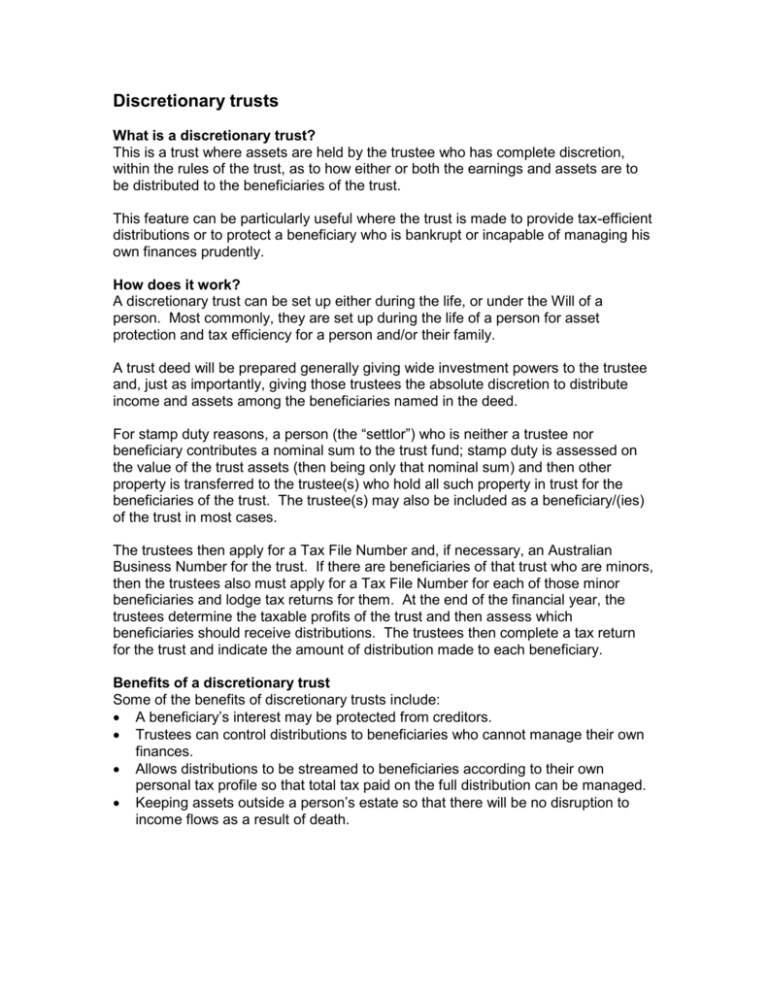
Discretionary trusts What is a discretionary trust? This is a trust where assets are held by the trustee who has complete discretion, within the rules of the trust, as to how either or both the earnings and assets are to be distributed to the beneficiaries of the trust. This feature can be particularly useful where the trust is made to provide tax-efficient distributions or to protect a beneficiary who is bankrupt or incapable of managing his own finances prudently. How does it work? A discretionary trust can be set up either during the life, or under the Will of a person. Most commonly, they are set up during the life of a person for asset protection and tax efficiency for a person and/or their family. A trust deed will be prepared generally giving wide investment powers to the trustee and, just as importantly, giving those trustees the absolute discretion to distribute income and assets among the beneficiaries named in the deed. For stamp duty reasons, a person (the “settlor”) who is neither a trustee nor beneficiary contributes a nominal sum to the trust fund; stamp duty is assessed on the value of the trust assets (then being only that nominal sum) and then other property is transferred to the trustee(s) who hold all such property in trust for the beneficiaries of the trust. The trustee(s) may also be included as a beneficiary/(ies) of the trust in most cases. The trustees then apply for a Tax File Number and, if necessary, an Australian Business Number for the trust. If there are beneficiaries of that trust who are minors, then the trustees also must apply for a Tax File Number for each of those minor beneficiaries and lodge tax returns for them. At the end of the financial year, the trustees determine the taxable profits of the trust and then assess which beneficiaries should receive distributions. The trustees then complete a tax return for the trust and indicate the amount of distribution made to each beneficiary. Benefits of a discretionary trust Some of the benefits of discretionary trusts include: A beneficiary’s interest may be protected from creditors. Trustees can control distributions to beneficiaries who cannot manage their own finances. Allows distributions to be streamed to beneficiaries according to their own personal tax profile so that total tax paid on the full distribution can be managed. Keeping assets outside a person’s estate so that there will be no disruption to income flows as a result of death. Taxation Generally, trusts will deduct allowable costs from income earned by the trust, and then distribute its net income to the beneficiaries. Since a trust does not usually pay tax itself (providing all of the trust’s income is distributed), any tax credits it receives from its investments (such as franking credits etc) may be available for distribution to the beneficiaries. They should include their share of the distributions and credits in their own tax return and utilise the credits in calculating their own tax liability. The trust will pay a flat rate of 47% tax on any undistributed profits. Ted Forkin, Sharon Greber and Kim Stewart are Authorised Representatives/ Insurance Broker Representatives of Godfrey Pembroke Ltd. Kim, Ted and Sharon can be contacted at the Godfrey Pembroke Ltd office on (08) 9091 4366. The advice contained herein does not take into account any persons particular objectives, needs or financial situation. Before making a decision regarding the acquisition or disposal of a Financial Product persons should assess whether the advice is appropriate to their objectives, needs or financial situation. Persons may wish to make this assessment themselves or seek the help of an adviser. No responsibility is taken for persons acting on the information provided. Persons doing so, do so at their own risk. Before acquiring a financial product a person should obtain a Product Disclosure Statement (PDS) relating to that product and consider the contents of the PDS before making a decision about whether to acquire the product. Godfrey Pembroke Limited ABN 23 002 336 254, registered office 105 - 153 Miller Street North Sydney NSW 2060, is an Australian Financial Services Licensee and member of the National Group of companies. From time to time Godfrey Pembroke, members of the National group of companies, associated employees or agents may have an interest in or receive pecuniary and non-pecuniary benefits from the financial products and services mentioned herein.

